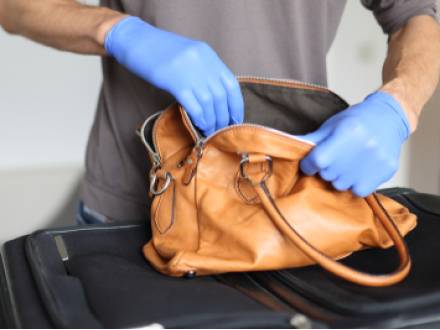DEA Ordered to Stop Searches and Seizures at Airports
 In recent years, the practice of asset forfeiture has received a great deal of attention. Law enforcement officials can use asset forfeiture to seize money or property that they believe is connected to a crime. However, this practice has led to a great deal of abuse, including many situations where people traveling through airports while carrying large amounts of cash have had their money seized by the Drug Enforcement Administration (DEA).
In recent years, the practice of asset forfeiture has received a great deal of attention. Law enforcement officials can use asset forfeiture to seize money or property that they believe is connected to a crime. However, this practice has led to a great deal of abuse, including many situations where people traveling through airports while carrying large amounts of cash have had their money seized by the Drug Enforcement Administration (DEA).
Criminal justice advocates have been fighting against this practice, and recently, the Department of Justice stepped in to prevent ongoing abuses by the DEA. People who are arrested and charged with crimes will often need to address the seizure of their assets while also determining their best options for defense against criminal charges. A skilled Hartford, CT attorney can help build a successful defense strategy while also working to recover assets that have been seized.
Justice Department Ends Practice of "Consensual Encounter" Searches
Traveling while carrying large amounts of cash is not illegal. There are many situations where doing so may be necessary, including making large purchases or depositing money in a bank. However, the DEA views these activities as suspicious, and agents regularly detain people traveling through airports who are carrying cash.
Money is often seized, even in situations where there is no evidence of a crime beyond the presence of the cash. In 2017, a report by the Justice Department Office of Inspector General (OIG) found that the DEA had seized more than $4 billion in cash over the previous decade, but $3.2 billion of these seizures were never connected to criminal activity.
The OIG has been investigating the DEA’s practices and discovered that the DEA regularly violates the rights of travelers. It uses informants working for airlines who flag travelers who may be suspicious, and these informants are paid using the money that is seized.
Travelers may be flagged for activities such as buying tickets at the last minute, booking one-way tickets, or traveling without checking baggage, even though none of these activities are illegal. These travelers are then detained by the DEA in what are known as "consensual encounters" where they are required to consent to a search before being allowed to travel.
Based on this investigation, which also found that the DEA has failed to train agents correctly and has not properly documented many searches, the Department of Justice has ordered the DEA to halt consensual encounter searches at airports. The DEA will still be allowed to perform searches if they are part of ongoing investigations into criminal networks, but it is required to stop searches and seizures that are based on regular people engaged in activities that could be viewed as suspicious. This is a victory for people whose civil liberties should be protected, ensuring that they can engage in legal activities and avoid harassment by law enforcement and the improper seizure of their money or property.
Contact Our Hartford, CT Criminal Defense Attorney
While this policy change may allow people to avoid harassment by the DEA when traveling with money in airports, there are many other situations where cash or other assets may be seized by law enforcement. For those who need to determine how to recover assets that have been confiscated while also defending against criminal charges, Woolf & Ross Law Firm, LLC can provide experienced legal representation. Our Connecticut criminal defense lawyer works to protect our clients’ rights, helping to resolve criminal cases and contest improper asset forfeitures. To learn more about how we can help with your case, contact us at 860-290-8690 and set up a free consultation.






